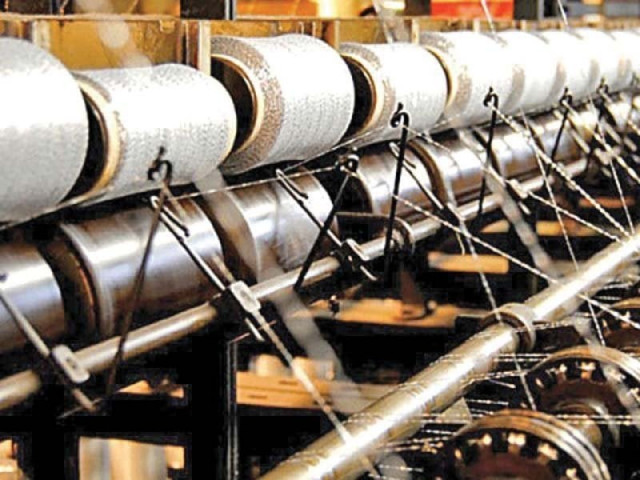Textile millers seek wide cooperation in fibre recycling
Industry plans to establish 1,000 garment plants with $7b investment to increase exports

All Pakistan Textile Mills Association (Aptma) Central Chairman Kamran Arshad has underlined the need for cooperation on a wider scale in fibre recycling and renewable energy, aimed at boosting the country's textile exports, creating jobs and contributing to the overall economic growth.
Speaking to a delegation of Gherzi, a textile management consulting and engineering company, he expressed hope that a strategic partnership with the consulting organisation would help expand Pakistan's economy.
He pointed out that member mills of Aptma had already achieved significant milestones in sustainability by complying with international and local standards. Pakistan's textile industry plans to establish 1,000 garment plants with an investment of $7 billion to ramp up exports to $50 billion, generate employment for 700,000 workers and produce garments worth $20 million per plant every year.
In his presentation, Gherzi Managing Partner Giuseppe Gherzi said that the global textile market was expected to witness a slowdown in garment production growth.
He said industry leaders were advised to stay agile and adapt to new trends to remain competitive in the ever-changing landscape. He identified 34 major trends transforming the textile industry, from production to consumption. "As the textile industry evolves, companies must adapt to these trends to remain competitive and sustainable."
Gherzi stressed that the textile industry would undergo significant transformation by 2030, driven by technological advancements, sustainability concerns and shifting market demands.
He highlighted the growing importance of recycling in connecting brands to man-made fibre producers, saying that multiple companies were investing in recycling technologies.
Speaking about the changing trends, he said, Galy Co, a biotech firm pioneering sustainable cotton production, has secured $33 million in oversubscribed Series B funding.
Galy's innovative approach isolates cell populations from various cotton plant varieties, cultivates them in labs and transforms them into stem cells using bioreactors. This method eliminates the need for conventional farming practices.
He emphasised the need for brands to adapt to the new market reality and innovate to drive growth, adding that the evolving landscape of US textile and apparel imports was gaining prominence.
He warned that as ultra-fast fashion gained ground, traditional fast fashion leaders must innovate to stay competitive. The global apparel resale market is experiencing a rapid growth, which is projected to reach $350 billion by 2028.

















COMMENTS
Comments are moderated and generally will be posted if they are on-topic and not abusive.
For more information, please see our Comments FAQ